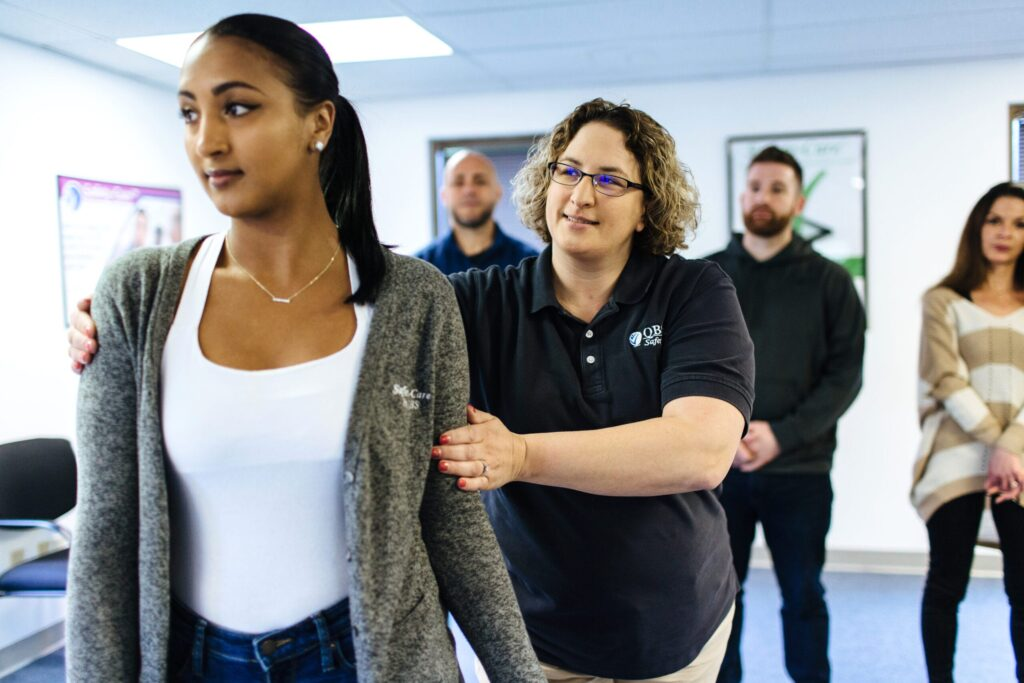Oklahoma SB 280 – Alzheimer’s/Dementia Training in Nursing Facilities
In addition to numerous changes regarding reimbursement to nursing facilities, Senate Bill 280 established a fee structure that requires that a portion be used to establish all clinical employees of nursing facilities to receive a minimum of four hours of Alzheimer’s or dementia training annually.

.png?width=88&height=95&name=Group%20137%20(5).png)


How to Implement Safety-Care?
-
Register for a Safety-Care Trainer class or call us to request a closed session for your organization. We regularly conduct classes in all 50 states and Canada.
-
Complete your class to become a certified Safety-Care Trainer for your organization. We bring you to fluency using an errorless teaching methodology.
-
You train and certify your staff in Safety-Care’s effective techniques.
-
Our Master Trainers are available by phone, email, or video to help your organization with any questions or concerns while using or implementing Safety-Care.

Legal Requirements
|
Summary and Safety-Care Alignment: Effective: October 1, 2019 Last Updated: December, 2024 In addition to numerous changes regarding reimbursement to nursing facilities, Senate Bill 280 established a fee structure that requires that a portion be used to establish all clinical employees of nursing facilities to receive a minimum of four hours of Alzheimer’s or dementia training annually. How Safety-Care aligns: Numerous health organizations throughout the United States and Canada rely upon QBS and our Safety-Care training to provide their staff members with the training they need to help maintain a safe and healthy environment. Safety-Care provides a comprehensive, supportive approach to incident prevention, de-escalation, and management. Your Staff will learn practical strategies for helping students that use evidence-based practices consistent with PBIS (Positive Behavior Interventions and Supports) and ABA (Applied Behavior Analysis). |
Why Safety-Care?
Benefits & Differentiators
In addition to Safety-Care being highly cost-effective, you get:

Skills to effectively prevent, minimize, & manage behavioral challenges with dignity, safety, & the possibility of change

Decreases in staff and patient injuries and reduction in restraint & seclusion time

Instructional procedures based on decades of evidence-based research & compatible with ABA, PBIS & reinforcement-based environments

Customizable program for your setting, staff & clientele, with a strong focus on preventative via non-intrusive, replacement behaviors

Extremely rigorous standards grounded in errorless teaching methodology

Small, intimate class sizes backed by unlimited support & resources
How Is Safety-Care So Effective?
A Genuine Focus on Implementing & Managing Positive Behavioral Skills
Proactive, environmental management recommendations
Understanding of evocative effects of staff behavior
In-depth analysis of antecedents and proactive antecedent interventions
Evidence-based reinforcement procedures
Required competency in de-escalation skills
Humane, non-invasive touch and QBS Check™ strategies
Evidence-based teaching procedures
Applicable to a wide array of settings, conditions & challenging behavior





